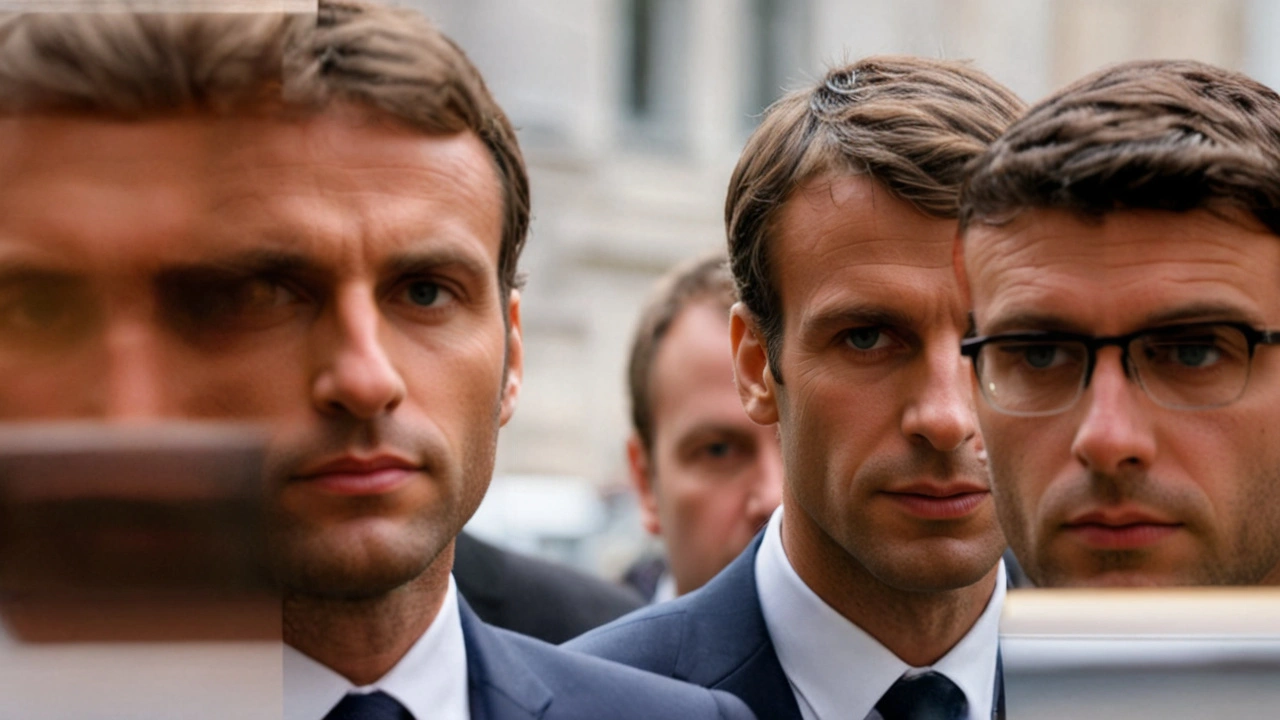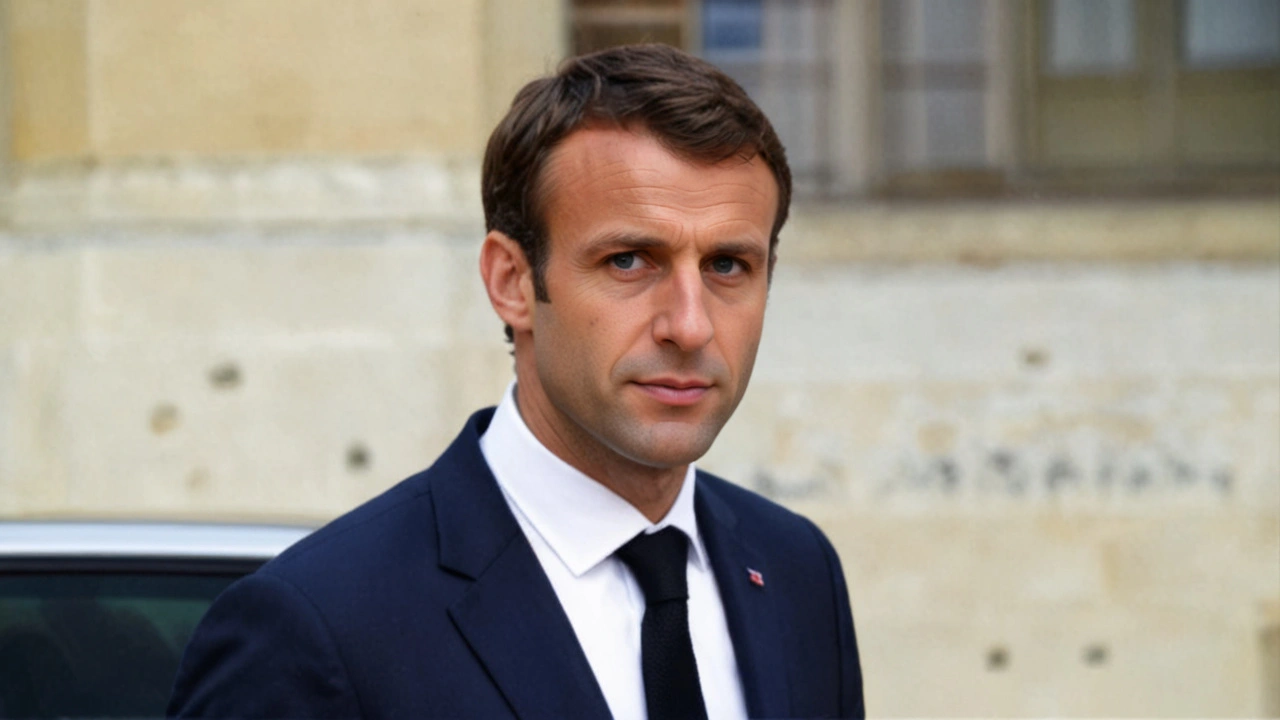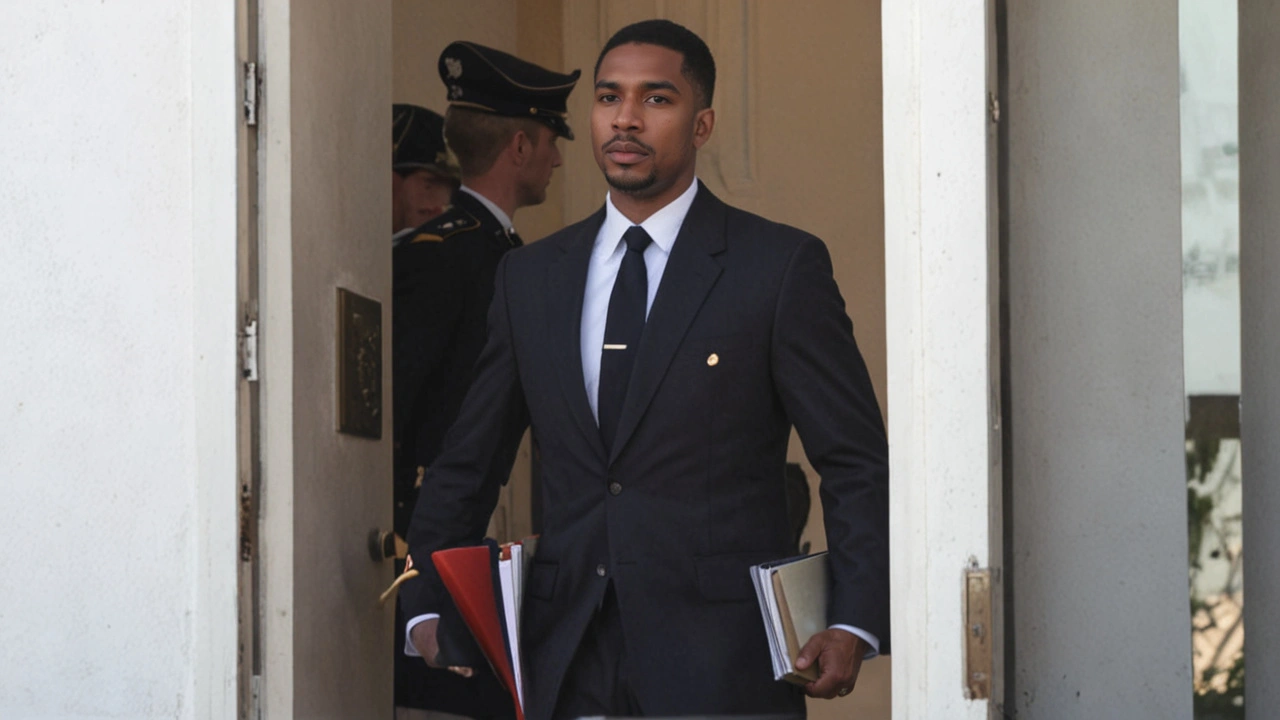Macron's Strategic Navigation Amid a Political Quagmire
In an unpredictable turn of events marked by political upheaval, French President Emmanuel Macron finds himself navigating a complex landscape. Accepting the resignation of Prime Minister Gabriel Attal, Macron has simultaneously appointed him to serve as the head of a caretaker government. This dual move comes at a precarious time, with the nation reeling from a tumultuous election outcome that has left the government gridlocked and in flux.
Immediate Concerns and Strategic Adjustments
Macron's decision to retain Attal in a temporary capacity underscores his commitment to stabilizing the current government, at least for the interim. This move is particularly crucial as France prepares to host the highly anticipated Paris Olympics. By keeping Attal at the helm for the time being, Macron ensures that essential day-to-day governmental operations continue without disruption. This tactic, while controversial to some, is deemed necessary for maintaining a semblance of order amid political chaos.
The Divided National Assembly
The recent elections for the National Assembly have resulted in a sharply divided parliament. Three main political factions now dominate the landscape: the New Popular Front leftist alliance, President Macron's centrist supporters, and the far-right National Rally led by Marine Le Pen. Each faction commands a significant portion of the assembly, but none have secured a clear majority. This division has led to a deadlock, complicating efforts to form a stable government.
The New Popular Front, a leftist coalition that includes France Unbowed, the Socialists, and the Greens, has pushed for the president to consider them in forming the new government. However, internal disputes over the selection of a new prime minister have hindered their progress. As debates rage on, the friction within this coalition only serves to deepen the impasse.
Caretaker Government’s Limited Role
The interim government, under Gabriel Attal’s leadership, is mandated to focus exclusively on daily operations, without implementing any major policies. The primary aim of this arrangement is to maintain essential public services and governmental functions while Macron deliberates on a more permanent solution. The National Assembly's inaugural session, scheduled for Thursday, will likely bring further discussions and debates, but immediate significant legislative action is improbable.

Reactions from Across the Political Spectrum
Unsurprisingly, Macron's decision has met with both support and criticism. Sebastien Chenu of the National Rally has openly condemned the move, labeling it undemocratic. He argues that the retention of Attal stymies the democratic process and calls for a fresh start with new leadership. However, amidst political opponents, some centrists and moderate voices appreciate the president’s strategy as a realistic approach to a complex situation.
The far-right, emboldened by their significant presence in the assembly, is pushing for more radical changes. Meanwhile, Macron’s supporters argue that the president’s approach is both pragmatic and necessary to ensure the nation’s stability during this political transition period.
Ongoing Deliberations and the Road Ahead
Macron has yet to announce a timeline for appointing a new prime minister, leading to speculation and uncertainty among political analysts and the public alike. As deliberations continue, Macron’s patience and cautious approach may prove beneficial, allowing him to weigh the best possible options for his next steps. It remains to be seen how long Attal will serve in this interim role and who will eventually be tapped to permanently lead the government.
France stands at a crossroads, where every decision made by the president will reverberate through its political and social fabric. Amid this uncertainty, the world watches closely, particularly with the international spotlight soon to shine brightly on Paris during the upcoming Olympics. The stakes are high, and Macron's actions will undoubtedly shape the immediate future of French politics.

Internal Struggles Within Political Alliances
Adding to the existing political drama are the internal struggles within the leftist coalition. Divided over the choice of a new prime minister, the coalition partners find unity elusive. The infighting not only weakens their stance but also diminishes their credibility in presenting a united front capable of leading the government. As Macron remains silent on his selection, these internal disputes continue to fester, further complicating an already intricate political tableau.
The Socialists, Greens, and France Unbowed each have their preferred candidates, and reaching a consensus has proven difficult. As a result, their calls for the president to consider them for government formation come across as fragmented and ineffectual. This division within the leftist camp has given Macron more leeway to delay his decision, biding his time until a more coherent and viable option presents itself.
The Public's Perspective
On the ground, the French public’s reactions are varied. Some citizens appreciate Macron’s approach, viewing it as a necessary step to prevent further instability during an already tense period. Others are frustrated by what they perceive as political gamesmanship, wanting a swift resolution and a clear direction forward for the country.
The specter of the Paris Olympics looms large, adding pressure on the government to present a stable and united front. This global event is not only a matter of national pride but also presents significant opportunities for economic and cultural benefits. Ensuring that the political situation is managed efficiently and effectively is paramount to the success of this event.
Conclusion
In conclusion, keeping Attal as interim prime minister appears to be a calculated decision by President Macron aimed at preserving stability during a politically volatile time. While it has its share of critics, it also provides a temporary solution as France navigates the complex process of government formation. The days and weeks ahead will be critical as political factions strive to break the deadlock, and Macron contemplates his next strategic move. As France braces for the Paris Olympics, the world watches how this political drama will unfold, awaiting the emergence of steady leadership to guide the nation through its challenges.

Mansi Bansal
July 18, 2024 AT 02:15When you look at the bigger picture, it's clear that stability matters more than any single appointment. The caretaker role can act as a bridge, giving the parliament breathing room while citizens keep confidence in the system. It's also a chance for France to showcase its commitment to democratic processes, even if it looks a bit unconventional. Remember, sometimes the best way forward is to hold the line just long enough for a more inclusive coalition to form, or at least for the Olympic games to kick off without a hitch. History has shown that patience combined with thoughtful guidance can turn a chaotic moment into a learning experience for all. It definatly shows that measured steps can be more effective than abrupt changes.
ajay kumar
July 18, 2024 AT 05:02Macron's move is just a stopgap, not a soluton.
Chinmay Bhoot
July 18, 2024 AT 07:48The whole thing reeks of political theater, a circus where the clowns keep swapping hats while the public watches in disbelief. Keeping Attal as a placeholder does nothing but stall real reforms and give the far‑right a platform to brag about their influence. It's a classic power‑play that pretends to be pragmatic but actually fuels the deadlock.
Raj Bajoria
July 18, 2024 AT 10:35Attal's interim role keeps the day‑to‑day running, but it won't push any new agenda.
Simardeep Singh
July 18, 2024 AT 13:22The caretaker government is like a candle in a storm, flickering but not bright enough to guide the ship.
It reminds us that political structures often survive on the thin line between inertia and urgency.
While Macron may argue it's a necessary pause, the pause itself becomes a pressure cooker for dissent.
Every day that Attal sits at the helm, the opposition gathers more ammunition, sharpening their critique.
The left‑wing coalition, already fragmented, sees this as a chance to claim moral high ground.
Meanwhile, the far‑right basks in the chaos, using it as proof of the system's failure.
Citizens, meanwhile, are caught between hope for stability and fatigue from endless negotiations.
The looming Olympics add a layer of urgency, as the world will be watching every misstep.
A government that cannot agree on a permanent prime minister risks spilling over into the games.
Yet, history tells us that temporary solutions can become permanent if no one dares to act.
The psychological toll on the public is real, fostering a sense of helplessness that feeds apathy.
In this atmosphere, the media amplifies every minor gaffe, turning them into national dramas.
Politicians, aware of the spotlight, tend to perform rather than govern, staging speeches instead of policies.
This performance theatre makes us question whether democratic institutions are alive or just props.
Ultimately, the real test will be whether Macron can translate this caretaker phase into a genuine consensus.
If he fails, the nation may find itself stuck in a loop of provisional cabinets, each promising change that never arrives.
Aryan Singh
July 18, 2024 AT 16:08From a governance perspective, a caretaker cabinet is limited to routine administration, which means no major legislation can be passed. This restriction is designed to prevent a temporary leader from making irreversible decisions. It also gives the parliament breathing space to negotiate a stable coalition. For the Olympics, ministries handling security and infrastructure can still operate under existing mandates, ensuring preparations stay on track. Observers should keep an eye on how the negotiation dynamics evolve in the upcoming National Assembly session.
Poorna Subramanian
July 18, 2024 AT 18:55Indeed the caretaker framework provides continuity it also imposes a clear ceiling on policy initiatives This balance aims to preserve institutional stability while encouraging political compromise
Soundarya Kumar
July 18, 2024 AT 21:42It's interesting how the political deadlock pushes everyone to rethink their priorities, especially with the Olympics looming on the horizon. The public seems to want both stability and fresh ideas, not just a placeholder. In the end, the best outcome might be a coalition that reflects the diverse voices across the spectrum rather than a single dominant bloc.
Sudaman TM
July 19, 2024 AT 00:28Of course the whole caretaker thing is just a smokescreen for indecisiveness 🙄 the real issue is that no one wants to take responsibility for bold reforms 📉
Rohit Bafna
July 19, 2024 AT 03:15Strategic governance under a provisional cabinet is an exigent paradigm, wherein the executive apparatus must navigate policy inertia whilst safeguarding national prestige during the imminent Olympiad. The discourse surrounding Attal's interim status is replete with populist rhetoric; however, from a geopolitical standpoint, continuity of administrative functions supersedes partisan volatility. Consequently, any legislative stagnation must be mitigated through inter‑ministerial coordination mechanisms, lest France's international standing be compromised.
Minal Chavan
July 19, 2024 AT 06:02The situation underscores the delicate balance between political pragmatism and democratic legitimacy. While interim leadership can ensure operational stability, it also highlights the urgency of forming a representative government. Observers will be watching closely how this balance is maintained in the weeks ahead.